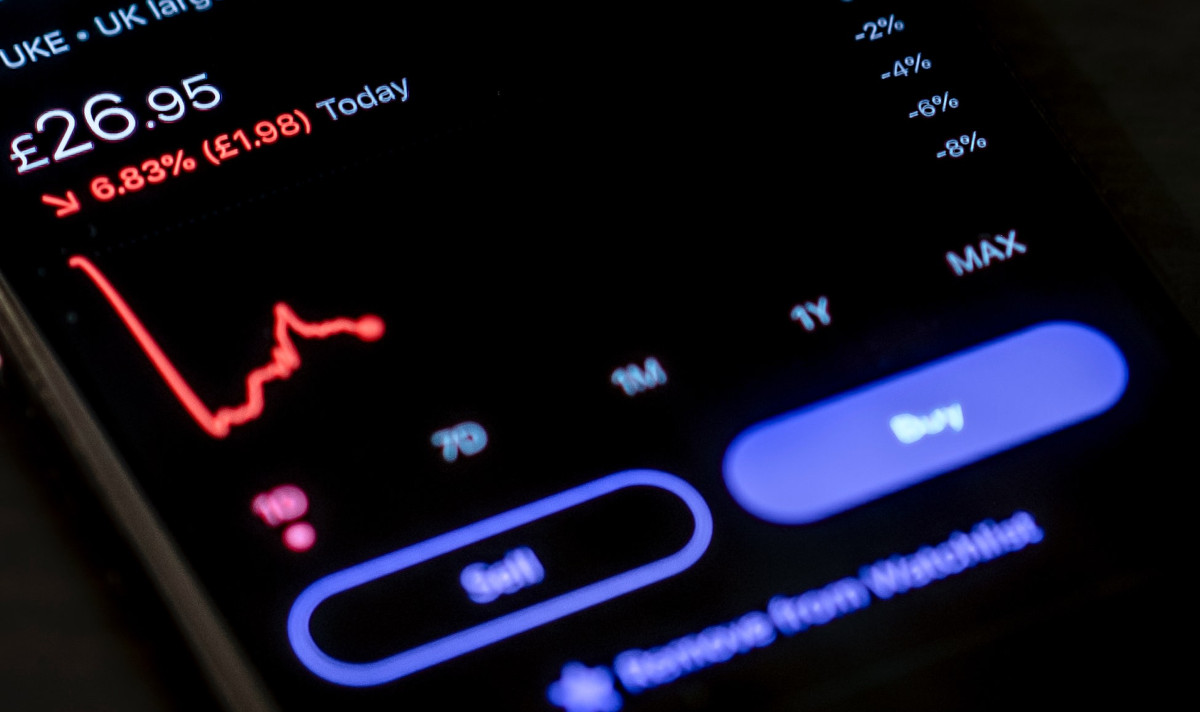Stock options contracts are made up of a few different components: the underlying stock in question, the strike price, the number of shares, and of course, the options expiration date. Also known as the exercise date, this is the point at which you must choose to exercise your contract or let it expire.
But what happens when options expire? We’ll answer this question and many others you may have about the expiration date on your options contract such as:
- What happens when call options expire in the money?
- What happens when call options expire out of the money?
- Does it ever make sense to let your options expire worthless?
You’ll even learn how to pick the right options expiration date to set yourself up for success, something you need to know how to do whether you’re selling covered calls for income or trying to learn how to make money with options the traditional way.
Basically, though, one of two things will happen when stock options expire: you’ll either be “in the money” and can exercise the contract to turn a profit. Or, you’ll be “out of the money” and will let your contract expire worthless.
End up in the money more often with the best options trading alert service and our stock analyzer software to pick the right stocks and set yourself up for success!
Featured Courses:
Introduction to Stock Options
Our more detailed beginner’s guide on how stock options work is a great resource if you’re just getting started. When you buy stock options, you’re purchasing a contract granting you the right – but not the obligation – to buy or sell a predetermined stock at a predetermined price (known as the strike price) before a predetermined date.
You can choose between two types of options contracts. Put options give you the right to sell the underlying stock in question, whereas call options give you the right to buy the underlying stock in question. The difference is best illustrated by explaining the situations in which you’d use them:
- You’d purchase put contracts when you expect the underlying stock to fall in price so you can then exercise your option to sell the stock at a premium price point (the strike price).
- On the other hand, you’d purchase call options when you expect the price of said stock to increase in price – allowing you the option to then buy that stock at a discount (the strike price).
In either situation above, you earn a profit from the difference in actual stock price and the strike price of your contract. Your downside is limited just to the price of the contract itself – whereas your upside can be unlimited.
However, all of this is only possible if your contract is “in the money” before the options expiration date. So what happens when options expire? Let’s take a closer look at the option expiration date.
What is the Options Expiration Date?
The options expiration date is the deadline for you to exercise your option. This date is also referred to as the exercise date. Whatever you call it, it’s on this date your contract will expire and become worthless unless you choose to buy or sell the underlying stock in question.
The specific expiration dates vary from one type of option to another and are listed on the options chain when you look up a particular stock. You can also find them printed on your confirmation statement after purchasing an option contract.
There are options contracts with timelines as short as one month, and then there are some with lifetimes of up to three years. As you can imagine, options contracts with expiration dates further in the future are more favorable for you as an investor – because you have more time and opportunity for your contract to get “in the money” compared to contracts with a closer expiration date.
Options usually expire on what’s known as “expiration Friday” – the third Friday of each month (unless that Friday falls on a holiday). This is for standardization across the market.
However, some contracts may also have what’s called “weekly options”, which expire on any Friday of the month. Some contracts may even expire every day – though this is usually only the case for highly liquid stocks with an extremely high demand for options trading.
What Happens When Options Expire?
So what happens when options expire? The contract becomes null and void – as we said earlier. But if you’re in the money, it’s likely your contract will be exercised automatically.
In these cases, your contract is converted into shares of stock at the strike price. It will look a bit different depending on the specific type of contract you purchased – call or put.
When it comes to stock options, long calls are transformed into 100 shares of the underlying asset at the strike price while short calls become converted to -100 shares.
On the other hand, long puts are instead switched over to -100 shares and short puts turn into 100 respective stocks at their pre-defined rate. From there, you’re free to continue managing your position in stock – or sell your position right away and capture cash profit.
What Happens When Call Options Expire In the Money (ITM)?
This means the stock’s market price is higher than the strike price in the expiration, and two things could happen:
- Automatic Exercise: Most brokerage accounts automatically exercise ITM call options, so you’ll buy 100 shares per contract at the strike price assuming you have enough capital in your account.
- Cash Settlement or Closing the Position: You can sell the contract before expiration to lock in profits if you don’t want to take ownership of the shares. Some traders also use cash settlement if their broker offers that option.
If you’re selling covered calls an ITM expiration typically means your shares will be called away, and the strike price will be the sale price. You may still earn a profit, but will miss out on the full potential if you’d have sold the stock at market price.
What Happens When Call Options Expire Out of the Money (OTM)?
In this case the stock’s market price is below the strike price, and the contract is worthless. If you’re selling covered calls this is a good thing – you earned profit from the premium and get to keep your shares.
But if you purchased a call options contract and it expires OTM, you’ll take a loss for the premium you paid upfront. It wouldn’t be profitable to buy the stock at a higher price than market value so you’ll let the contract expire worthless.
What Happens When a Spread Expires Partially In the Money?
A partial ITM expiration means one leg of the spread expires ITM while the other expires OTM. What does this really mean for you, though? It depends on if it’s a bull call spread or bear put spread:
- Bull Call Spread: If the long call expires ITM but the short call is OTM, you’ll either exercise the long call (buy shares at the lower strike) or close the position before expiration to capture profits.
- Bear Put Spread: If the long put expires ITM and the short put is OTM, you can exercise the put (sell shares at the higher strike price) or settle for the net difference between strikes.
Now, if both legs expire ITM, you’ll typically see your position settled for a profit equal to the strike price difference minus the premium paid. Be prepared for potential assignment if only one leg is ITM, though.
Do You Lose Money if Options Expire?
That’s what happens when options expire in the money. But, what happens when options expire out of the money? Do you lose money? Yes – unfortunately, this outcome results in a loss. However, your downside is only limited to the premium you paid for the contract.
Who Makes Money When Options Expire?
That all depends on how the contract expires. If it expires out of the money, the seller of the contract makes money because they earned some premium from the initial trade and get to keep their stocks.
But if the contract expires in the money, then the holder of the contract makes money in some way as they can either buy the stock at a discount (and then flip it for a profit or continue holding for longer-term gains) or sell the stock at a premium relative to its market price.
What Time Do Options Expire – the Open or Close of the Trading Day?
Options expire at what’s known as the “closing bell”. That’s when the stock market closes and all trades are finalized. After that time, no more options contracts can be traded and any remaining positions will become worthless – they’ll simply disappear from your account.
How Long Do Stock Options Take to Expire?
There’s no one-size-fits-all answer since there are a few different types of contracts, but you’ll typically see yours fall into one of three buckets:
- Weekly Options: Expire every Friday (except holidays).
- Monthly Options: Expire on the third Friday of the month (most common).
- LEAPS (Long-Term Equity Anticipation Securities): Can last up to three years.
Remember, all stock options contracts expire at market close on the expiration date – with European options contracts being the exception. On that note…
American vs European Options Expiration Dates
It’s important to note that when it comes to American or European options, the expiration date is a bit different. American options can be exercised at any time before expiration, while European options can only be exercised on the expiration date. This distinction is key, as European options can be much less favorable to the investor.
Is it Better to Close an Option or Let it Expire?
Closing an option before expiration is often the better choice if it still holds some value. This locks in profits or reduces losses to protect sellers from assignment or an unexpected market move.
Really, letting an option expire only makes sense if it’s deep in the money and automatic exercise aligns with your strategy, or if it’s out of the money and worthless – meaning there’s nothing left to recover.
We advocate for actively managing options contracts by rolling or closing them for more control over your strategy. Speaking of rolling options…
Rolling Options as Expiration Looms
You should understand the concept of rolling covered calls, or rolling options contracts in general, if things are looking bleak as the expiration date looms closer and closer.
This is a risk management options trading strategy where you can close the current contract by opening a new one with a later expiration date and often a new strike price based on current conditions.
This approach makes sense if the option is near the money but not quite there and needs more time. This can help covered call sellers in particular as they can avoid assignment and continue to collect premiums. But even options buyers can benefit from rolling to avoid total loss.
Your Choices With Before the Stock Options Expiration Date
There are three choices you can make any time you purchase stock options contracts. The decision you make will be influenced by the situation in question. Ideally, you’d be in the money before the expiration date and exercise the option. However, if that isn’t the case, you can either sell the contract or let it expire worthless.
Exercise the Stock Options Before Expiration When it’s in the Money
The goal when purchasing any stock options contract is to end up in the money. This is what occurs when the present-day stock price is trading above (if you bought call options) or below (if you bought put options) the strike price of your contract.
For example, if you bought a call options contract for company XYZ with a strike price of $20/share and an exercise date of 6 months out. After a week the share price raises a bit to $21/share – your contract is in the money because if you exercise it, you stand to gain a profit.
Or, let’s say you bought a put options contract for the same company with the same strike price and expiration date. After a week, the stock drops in value down to $19/share. Your contract is in the money – and you can exercise the option to sell that stock at a premium of $1/share.
Obviously, this is the ideal outcome. And it’s something you can enjoy at a high rate of consistency when you leverage the VectorVest system (more on that later).
But – what if your contract is out of the money and the options expiration date is rapidly approaching? There are two choices.
Sell the Options Contract for Whatever You Can Get
If there is still enough time before the expiration date that your contract has value – but you’re ready to cut losses and move on to another opportunity – you can try to sell your options contract.
You will likely not make what you paid for the contract, but you can recoup some of your losses by selling it off to another willing buyer. Just know that the closer your contract is to the expiration date, the less value it has.
Let the Options Contract Expire
If the expiration date is here – or is rapidly approaching – and you’re still out of the money, chances are, you’ll be unable to flip the contract and recover any of that premium paid. So, you’ll just let it expire and do nothing – as exercising the contract would likely result in a greater loss than the premium you paid.
But, because you can find great prices on options contract, your downside is fairly limited – making these an attractive investment vehicle for many strategies.
And if you want to learn more about how to start trading options at a high rate of success, keep reading below. We’ll let you in on a few tips to let you pick options that get in the money before expiring – with a consistent, repeatable approach!
Tips for Getting in the Money Before the Options Expiration Date Comes
Certain tactics can help keep your losses as small and infrequent as possible. Being able to choose favorable contracts using software to uncover, monitor, and exercise potential options contracts is what sets the best options traders apart from those who struggle to find success.
How to Pick the Right Options Expiration Date
There’s a direct correlation between the time until expiration and the option premiums you pay. You’ll generally pay less for a contract the closer to expiration it is since you have less time on your side to get ITM.
So if you’re new to options trading and want to limit risk, look for contracts with a lot of time left until expiration. You just need the present-day strike price to get you in the money at some point in time with American options contracts.
On the other hand, if you want to maximize your return by buying cheaper options contracts, you can choose an expiration date that’s closer out – like a week or one month. These will be much cheaper as you have less time to work with.
Use VectorVest to Find and Validate Opportunities in the Stock Market
While finding contracts with more favorable terms increases your likelihood of success, the best thing you can do is use a stock forecasting software to uncover and validate opportunities in the stock market.
Because stock options are entirely dependent on the underlying stocks in question, this can aid you with buying options contracts as well. That’s where VectorVest comes in, helping you find the best stocks for covered calls or any other options strategy for that matter.
It tells you exactly what to buy, when to buy it, and when to sell it – helping you time your contract to perfection. By identifying a trend early – before the rest of the market does – you can get more favorable terms for your options contract. VectorVest helps you do just that.
And, it gives you insight into stock sentiment so you can assess when investors are starting to turn on a stock and it may be ready for a price reversal.
With VectorVest, you don’t have to waste your time manually tracking technical trading indicators, following moving averages, or using other complex, time-consuming tactics to analyze a stock. Instead, just rely on three simple ratings that tell you everything you need to know to make informed, emotionless decisions: relative value (RV), relative safety (RS), and relative timing (RT).
The best part? You’re given a clear buy, sell, or hold recommendation for any given stock at any given time. The value VectorVest provides in your strategy is immense – and you can even take trading on the go through the stock advisory app.
If you want to see it in action, try our free stock analyzer today as we wrap up our guide to what happens when stock options expire.
Parting Thoughts on What Happens When Stock Options Expire
That concludes our full discussion on stock options expiration dates. Now that you know what happens when options expire and how to pick the right options expiration date, you should feel more confident navigating options trading.
But if you want to learn more about these contracts beyond the stock options expiration date, we have other in-depth resources in our blog. Read about stock warrants vs options, what does it mean to exercise stock options, when to exercise stock options, stock vs stock options, swing trading vs options trading, or even swing trading options!
Otherwise, it’s time to get your Vectorvest account set up and jumpstart your journey to consistently profitable trading. You won’t look back once you see what the system can do for your life!







Nice post. I learn something new and challenging on websites I stumbleupon on a daily basis. It’s always helpful to read content from other writers and practice a little something from other web sites.
It reduces pressure on the pump and helps to save lots of power.
What’s up every one, here every person is sharing these kinds
of familiarity, so it’s nice to read this website, and I used
to pay a quick visit this blog all the time.
I just like the helpful info you provide in your articles. I’ll bookmark your blog and test again right here frequently. I’m quite certain I will be told lots of new stuff proper here! Good luck for the next!